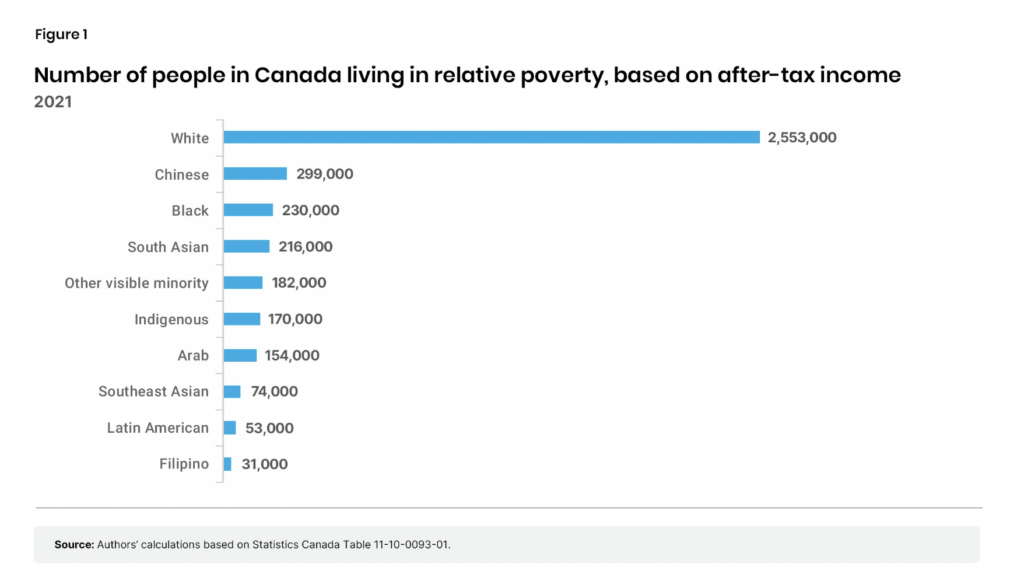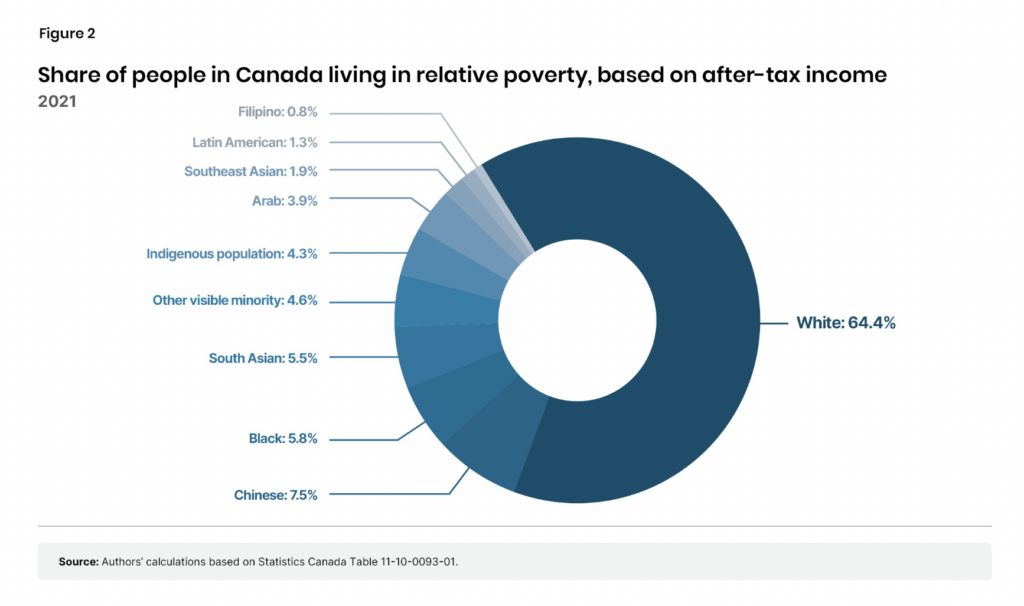New research from a Calgary-based think tank has found that well over half of Canada’s poor are White despite the country’s rapidly changing demographics and minority-focused poverty policies.

According to the study produced by the Aristotle Foundation for Public Policy, which looked into poverty stats from Statistics Canada and related poverty policies, 64.4% of the poor in Canada are White or “not a visible minority nor Indigenous”, constituting 2.5 million of the 3.9 million poor Canadians.
Those of Chinese or South Asian (Indian) descent, being the largest minority groups in Canada and the countries from which Canada has drawn the vast majority of migrants in recent years, make up 7.5% and 5.5% of Canada’s poor population, respectively.
Meanwhile, Indigenous Canadians, who receive the greatest amount of press, make up 4.4% of Canada’s poor.


Canadian government too obsessed with race to make a difference
Besides the raw numbers, researchers also focused on the Canadian government’s agenda when it comes to tackling poverty, finding it utterly impotent due to its obsession with race and race-based programs rather than prioritizing need and focusing on income.
“Race-based government programs do an inadequate job of targeting the poor, and thus aid only a small share of those most in need… an anti-poverty program based on race but not financial need as its criterion will predominantly benefit those who are, in fact, not living in poverty,” the authors write.
“In Canada, while some visible minority groups experience poverty in numbers disproportionate to the general population, it is also true that some visible minority groups are less likely to live in poverty. The groups least likely to be living in low income after tax in Canada are those with Filipino, South Asian, and Latin American ancestry.”
“Clearly, based on statistics alone, if the aim of race-based funding programs is to combat poverty, they miss their mark.”
The authors also point out that despite claims to the contrary, systemic racism is in no way, shape, or form the cause of poverty in Canada.
To this point, they note the fact that various groups of Canadian-born Asians (Japanese, Korean, Chinese, etc.) consistently earn higher incomes than their White counterparts, and after controlling for educational attainment, Indigenous and non-Indigenous Canadians have similar outcomes in terms of average income.
Moreover, the authors point out that race-based poverty programs are more often and more easily exploited by affluent members of racial groups or by rich business leaders who may create race-focused charities or programs that end up taking the lion’s share of the financial support.
“In summary, poverty rates in Canada are low, not well accounted for by explanations of systemic racial discrimination, and race-based anti-poverty programs and funds tend to be ineffective, at best, for addressing the needs of those who are truly living in destitution,” the study concludes.











